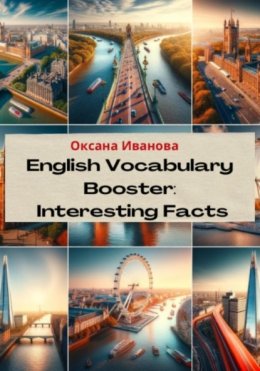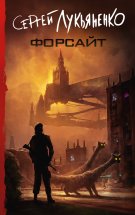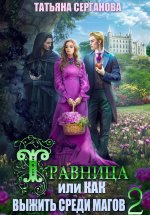Читать онлайн English Vocabulary Booster: Interesting Facts
- Автор: Оксана Иванова
- Жанр: Английский язык, ЕГЭ по иностранному языку

ANTS
Social Organization:
Ants live in organized colonies with different jobs for each ant.
The queen ant lays eggs and runs the colony.
Worker ants collect food, build the nest, and take care of the young.
Soldier ants protect the colony from danger.
Communication:
Ants talk to each other using chemicals called pheromones.
They leave pheromone trails to show other ants where to find food.
Ants also use pheromones to warn each other about danger.
Food:
Ants eat a variety of foods, including plants, insects, and other small animals.
Some ants farm aphids for their sweet honeydew.
Other ants cut leaves to grow fungus for food.
Strength and Movement:
Ants are very strong for their size. They can lift objects much heavier than themselves.
Ants are also very good at climbing and jumping.
Some ants, like bullet ants, have painful venom.
Life Cycle:
Ants go through four stages in their life: egg, larva, pupa, and adult.
The queen ant lays eggs that hatch into larvae.
Workers feed and care for the larvae until they grow into pupae.
The pupae then change into adult ants.
Importance:
Ants are important for the environment.
They help to spread seeds, aerate the soil, and control pests.
Some ants are even used to control pests in farms and gardens.
WORDLIST:
queen – королева
lays eggs – откладывает яйца
runs the colony – управляет колонией
communication – общение
chemicals called pheromones – химические вещества, называемые феромонами
warn – предупреждать
variety – разнообразие
insects – насекомые
farm aphids – разводить тлей
honeydew – падь
fungus – гриб
strength – сила
bullet ants – муравьи-пули
painful venom – болезненный яд
life cycle – жизненный цикл
larva – личинка
pupa – куколка
pupae – куколки
adult – взрослая особь
hatch into larvae – вылупляются в личинок
Importance – важность
environment – окружающая среда
spread seeds – распространять семена
aerate the soil – аэрировать почву
pests – вредители
TOYS
Fascinating Facts About Toys
The oldest known toy is a doll made from mammoth ivory, which is over 30,000 years old.
The first teddy bear was created in 1902 by Morris Michtom, who named it after President Theodore Roosevelt.
The best-selling toy of all time is the Rubik's Cube, with over 350 million sold worldwide.
The first video game console was the Magnavox Odyssey, which was released in 1972.
The most popular toy in the world today is the Barbie doll, which has been sold in over 150 countries.
Other interesting facts about toys:
Toys can help children develop their imagination, creativity, and social skills.
Playing with toys can also help children learn about the world around them.
Some toys, such as puzzles and building blocks, can even help children develop their problem-solving skills.
Toys can be made from a variety of materials, including wood, plastic, metal, and fabric.
Some toys are designed to be educational, while others are simply for fun.
Toys play an important role in the lives of children, and they can bring joy and learning to people of all ages.
WORDLIST:
mammoth ivory – бивень мамонта
teddy bear – плюшевый мишка
worldwide – всемирно
game console – игровая приставка
develop their imagination – развивать воображение
creativity – креативность
social skills – социальные навыки
problem-solving skills – навыки решения проблем
variety of materials – различные материалы
wood – дерево
fabric – ткань
are designed to be educational – предназначены для обучения
bring joy – приносить радость
MONEY
Fascinating Facts About Money
The first coins were made of electrum, a naturally occurring alloy of gold and silver, around 600 BC in Lydia, which is now part of Turkey.
The first paper money was invented in China during the Tang Dynasty in the 7th century AD.
The US dollar is the most traded currency in the world.
The most valuable coin in the world is the Flowing Hair silver dollar, which was minted in 1794 and is worth over $10 million.
The world's most expensive banknote is the 10,000 Singapore dollar note, which is worth over $7,000 US dollars.
Other interesting facts about money:
Money can be made from a variety of materials, including metal, paper, and plastic.
Some currencies, such as the British pound, have been around for centuries.
The value of money can fluctuate depending on economic conditions.
Money is used to buy goods and services, and it can also be used to save for the future.
Money can be a source of stress for some people, but it can also be a source of security and freedom.
Money is an important part of our lives, and it plays a vital role in the global economy.
WORDLIST:
coins – монеты
electrum – электрум
naturally occurring alloy of gold and silver – естественный сплав золота и серебра
Turkey – Турция
paper money – бумажные деньги
the most traded currency – самая торгуемая валюта
valuable – ценный
silver – серебро
was minted – был отчеканен
expensive – дорогой
dollar note – долларовая купюра
which is worth – которая стоит
British pound – британский фунт стерлингов
value of money – стоимость денег
fluctuate – колебаться
economic conditions – экономические условия
goods and services – товары и услуги
source of stress – источник стресса
security – безопасность
freedom – свобода
vital role – жизненно важная роль
BLOOD
Fascinating Facts About Blood
The average adult has about 5 liters (1.3 gallons) of blood in their body.
Blood is made up of four main components: red blood cells, white blood cells, platelets, and plasma.
Red blood cells carry oxygen from the lungs to the rest of the body.
White blood cells help the body fight infection.
Platelets help the blood to clot.
Plasma is the liquid part of blood and it carries nutrients, hormones, and waste products.
Other interesting facts about blood:
Blood is slightly sticky and it is always moving around the body.
The color of blood is determined by the amount of oxygen it is carrying. Oxygenated blood is bright red, while deoxygenated blood is dark red.
Blood type is determined by the presence or absence of certain antigens on the surface of red blood cells. There are four main blood types: A, B, AB, and O.
Blood transfusions are used to replace lost blood or to treat certain medical conditions.
Blood can be donated to help people who are sick or injured.
Blood is an essential part of our body and it plays a vital role in our health and well-being.
WORDLIST:
average – средний
main components – основные компоненты
red blood cells – эритроциты
white blood cells – лейкоциты
platelets – тромбоциты
plasma – плазма
carry oxygen – переносить кислород
lungs – легкие
rest of the body – остальное тело
fight infection – бороться с инфекцией
clot – сворачиваться
liquid part – жидкая часть
nutrients – питательные вещества
hormones – гормоны
waste products – отходы
slightly sticky – слегка липкий
is determined by – определяется
oxygenated – насыщенный кислородом
deoxygenated – обедненный кислородом
presence – наличие
absence – отсутствие
certain antigens – определенные антигены
surface – поверхность
blood transfusions – переливание крови
treat – лечить
certain medical conditions – определенные медицинские состояния
sick or injured – больные или раненые
essential – жизненно важный
well-being – благополучие
DOLPHINS
Fascinating Facts About Dolphins
Dolphins are not fish, but mammals. They are warm-blooded, give birth to live young, and nurse their young with milk.
Dolphins are highly intelligent animals. They have a complex social structure, and they communicate with each other using a variety of clicks, whistles, and body gestures.
Dolphins have a remarkable ability to echolocate. They emit high-pitched sounds that bounce off objects in their environment, allowing them to create a mental map of their surroundings.
Dolphins are social animals that live in pods of up to 100 individuals. They work together to hunt for food and protect themselves from predators.
Dolphins are apex predators that feed on a variety of fish, squid, and crustaceans. They use their sharp teeth to tear their prey apart.
Dolphins are playful animals that enjoy engaging in a variety of behaviors, including jumping, spinning, and tail-walking.
Dolphins have a long lifespan. Some species can live for up to 50 years in the wild.
WORDLIST:
mammals – млекопитающие
warm-blooded – теплокровные
give birth to live young – рождать детенышей
nurse – выкармливать
highly intelligent – высокоинтеллектуальные
complex social structure – сложная социальная структура
communicate – общаться
clicks – щелчки
whistles – свисты
body gestures – жесты
remarkable – замечательная
ability – способность
echolocate – эхолоцировать
emit – испускать
high-pitched sounds – высокочастотные звуки
bounce off objects – отражаться от объектов
create a mental map – создавать мысленную карту
surroundings – окружение
live in pods – жить в стаях
predators – хищники
apex – высшие
squid – кальмары
crustaceans – ракообразные
to tear their prey apart – разрывать добычу на части
spinning – вращение
lifespan – продолжительность жизни
species – виды
VAMPIRES
Vampires are mythical creatures that have been featured in folklore and popular culture for centuries. They are typically depicted as undead beings that feed on the blood of the living.
The word "vampire" comes from the Serbian word "vampir", which means "bloodsucker".
Vampires are often associated with bats, and some cultures believe that vampires can transform into bats.
In some cultures, vampires are said to be repelled by garlic, sunlight, and running water.
The most famous vampire in literature is Count Dracula, created by Bram Stoker in his 1897 novel Dracula.
Vampires have been the subject of numerous films, television shows, and books.
There is no scientific evidence to support the existence of vampires.
Additional interesting facts:
Vampires are often depicted with sharp fangs, which they use to pierce the skin of their victims and suck their blood.
Vampires are often said to be immortal, and they can only be killed by a stake through the heart, decapitation, or exposure to sunlight.
Vampires are often associated with darkness and evil, but some cultures believe that they can also be benevolent creatures.
The vampire bat is a real animal that feeds on the blood of other animals, but it is not a mythical vampire.
WORDLIST:
mythical creatures – мифические существа
for centuries – на протяжении столетий
depicted as – изображаемые как
undead beings – нежить
bloodsucker – кровопийца
be repelled – отталкиваться
garlic – чеснок
sunlight – солнечный свет
count – граф
novel – роман
numerous – многочисленные
scientific evidence – научные доказательства
to support the existence – подтверждать существование
additional – дополнительные
sharp fangs – острые клыки
to pierce the skin – пронзать кожу
victims – жертвы
immortal – бессмертные
stake through the heart – кол в сердце
decapitation – обезглавливание
exposure – воздействие
darkness and evil – тьма и зло
benevolent creatures – доброжелательные существа
ANIME
Anime is a style of animation that originated in Japan.
The word "anime" is short for "animation".
Anime is typically characterized by its colorful graphics, vibrant characters, and exaggerated facial expressions.
Anime is popular all over the world, and there are many different genres of anime, including action, adventure, comedy, drama, and romance.
Some of the most popular anime series include Naruto, One Piece, and Dragon Ball Z.
Anime is often adapted from manga, which are Japanese comics.
Anime has been influenced by a variety of other art forms, including traditional Japanese painting, ukiyo-e prints, and Western animation.
Anime is often used to tell stories that are too complex or expensive to be told in live-action.
Anime has been credited with helping to popularize Japanese culture around the world.
Additional interesting facts:
The first anime series was produced in 1917.
The longest-running anime series is Sazae-san, which has been airing since 1969.
Anime is often used to promote Japanese products and tourism.
There are many anime conventions held around the world each year.
Anime has inspired a variety of other art forms, including video games, music, and fashion.
WORDLIST:
originated – возникла
Japan – Япония
typically – обычно
vibrant characters – яркие персонажи
exaggerated – преувеличенные
facial expressions – выражения лица
all over the world – по всему миру
action – экшн
adventure – приключения
romance – романтика
is often adapted from – часто адаптируется из
influenced by – под влиянием
complex – сложные
the longest-running – самый продолжительный
promote – продвигать
anime conventions – аниме-конвенции
has inspired – вдохновил
fashion – мода
SKIRTS
Skirts are a type of clothing worn around the waist that covers the legs.
Skirts are worn by people of all ages and genders, although they are most commonly associated with women.
Skirts come in a variety of lengths, from mini skirts to maxi skirts.
Skirts can be made from a variety of materials, including cotton, silk, denim, and leather.
Skirts can be plain or patterned, and they can be decorated with a variety of embellishments, such as beads, sequins, and lace.
Skirts can be worn for a variety of occasions, from casual to formal.
Skirts have been worn for centuries, and they continue to be a popular fashion item today.
Additional interesting facts:
The first skirts were made of animal skins and were worn by both men and women.
In the Middle Ages, skirts were often worn over breeches or trousers.
In the 19th century, skirts became more elaborate and were often worn with corsets.
In the 20th century, skirts became shorter and more casual.
Today, skirts are available in a wide variety of styles to suit all tastes and occasions.
Skirt lengths:
Mini skirt: above the knee
Knee-length skirt: at the knee
Midi skirt: below the knee but above the ankle
Maxi skirt: at or below the ankle
Skirt types:
A-line skirt: a skirt that is wider at the bottom than at the waist
Circle skirt: a skirt that is cut in a circle
Pencil skirt: a narrow, straight skirt
Pleated skirt: a skirt with pleats
Ruffle skirt: a skirt with ruffles
Tiered skirt: a skirt with multiple layers of fabric
WORDLIST:
type of clothing – вид одежды
waist – талия
cover – покрывать
gender – пол
although – хотя
commonly associated – обычно ассоциируется
length – длина
cotton – хлопок
silk – шелк
denim – деним
leather – кожа
plain – однотонный
patterned – узорчатый
embellishments – украшения
beads – бусины
sequins – пайетки
lace – кружево
occasions – случаи
breeches – бриджи
became more elaborate – стали более сложными
above the knee – выше колена
above the ankle – выше щиколотки
circle skirt – юбка-солнце
narrow – узкий
pleated skirt – плиссированная юбка
ruffle skirt – юбка с рюшами
tiered skirt – многоярусная юбка
multiple layers of fabric – несколько слоев ткани
BONES
Bones are the hard tissue that makes up the skeleton of vertebrates.
Bones provide support and protection for the body, and they also help to facilitate movement.
Bones are made up of a protein called collagen and a mineral called calcium phosphate.
The human body has 206 bones.
The longest bone in the body is the femur, which is the thigh bone.
The smallest bone in the body is the stapes, which is located in the middle ear.
Bones are constantly being remodeled, with new bone being created and old bone being broken down.
Bones are living tissue, and they contain blood vessels and nerves.
Bones can heal themselves if they are broken.
Additional interesting facts:
Bones are stronger than steel, pound for pound.
Bones make up about 14% of the body's weight.
Bones help to store calcium and phosphorus.
Bones help to produce red blood cells.
Bones can be affected by a variety of diseases, including osteoporosis, arthritis, and cancer.











